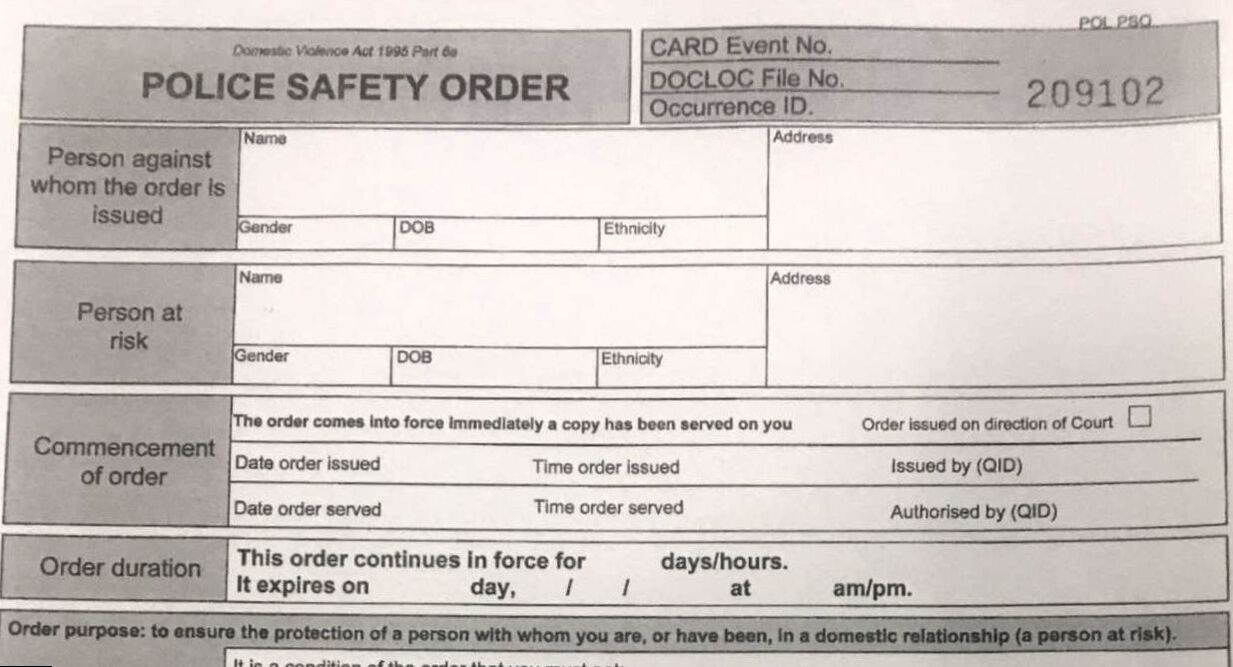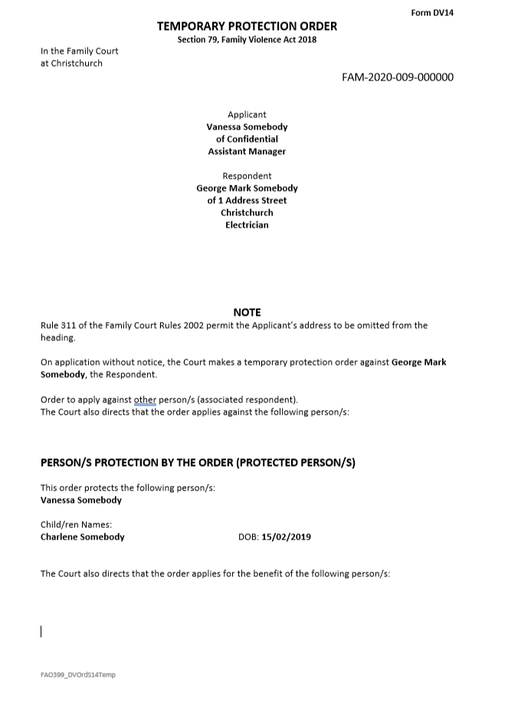If you need a Protection Order
|
Protection Orders and Police Safety Orders
The main piece of legislation in the Family Court addressing violence between adults is the Family Violence Act 2018. Family violence includes physical violence, sexual violence and psychological/emotional violence (e.g. stalking, harassment, verbal abuse, economic abuse, controlling or manipulative behaviour, threats, belittling, etc.). More recently the terminology "family harm" has been favoured by Police and other sector agencies. If you are being abused and need help, our Legal Response Team can put you in touch with the right people to support you, as well as arrange for a lawyer if you need a Protection Order. Legal aid is available for clients needing help with family violence. Other help (including financial assistance) is available and Women's Refuge has some excellent advice here. You can call their Crisisline on 0800 REFUGE (0800 733 843).
|
|
"What happens when someone is served with a Protection Order?" |
Temporary protections orders (those issued 'without notice'/under urgency) will normally be served on a respondent by the NZ Police.
Once served with a temporary protection order the first thing the person needs to do is read it, understand it and do what it says. Along with the protection order there will be an order to attend a non-violence programme. Our lawyers will almost always recommend |
recommend Respondents to contact the provider and attend the programme.
They have the right to defend the order. If they don't defend the order then after three months the order will automatically become final. If a permanent protection order is made against then they may apply to the Family Court to have it discharged. |
Defending or discharging a protection order - like anything involving the Court - is not as straightforward as it sounds., particularly if the Respondents tries to self-represent.
People are entitled to make Applications themselves and to self-represent in Court but this is not as straightforward as it seems. Getting legal advice from a specialist family lawyer is better for both the Respondent and the Applicant. |
More information that could be helpful...











